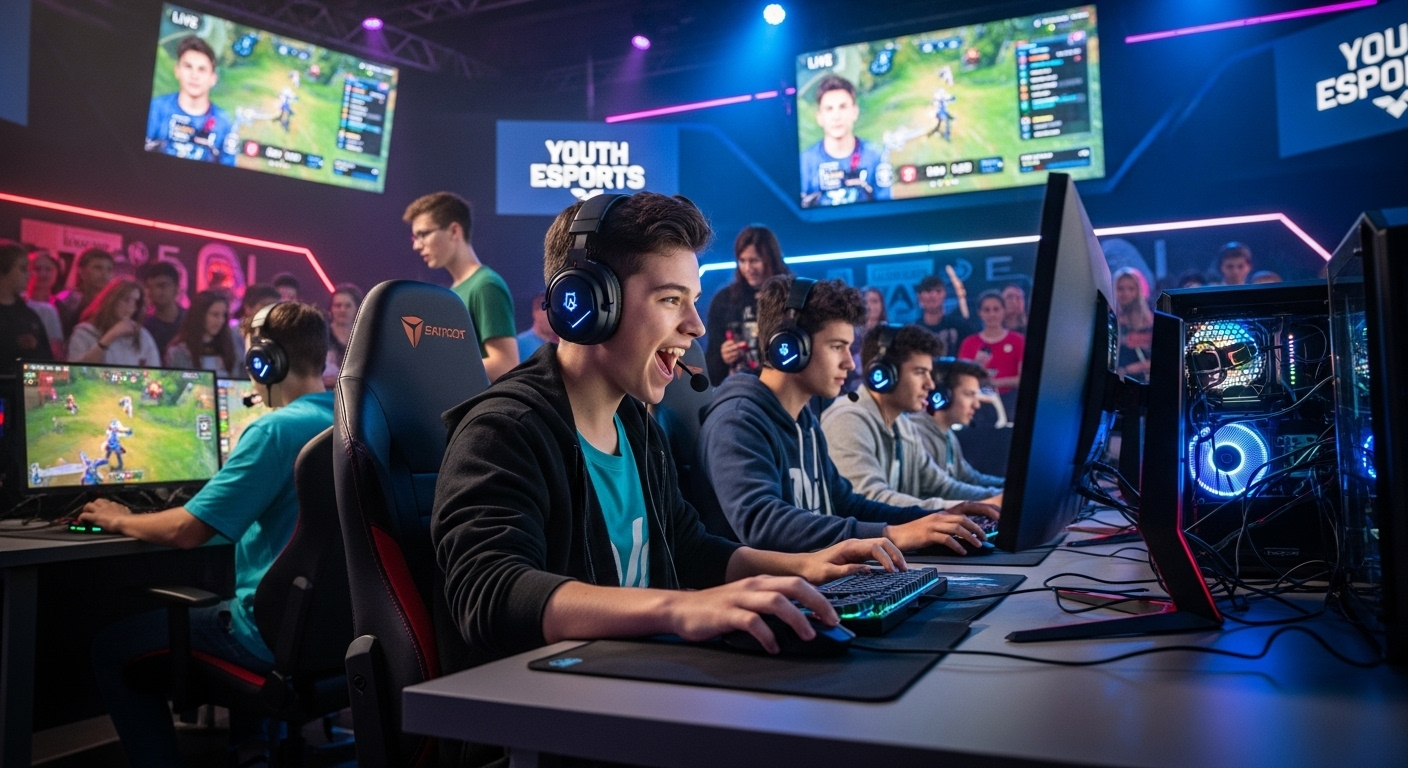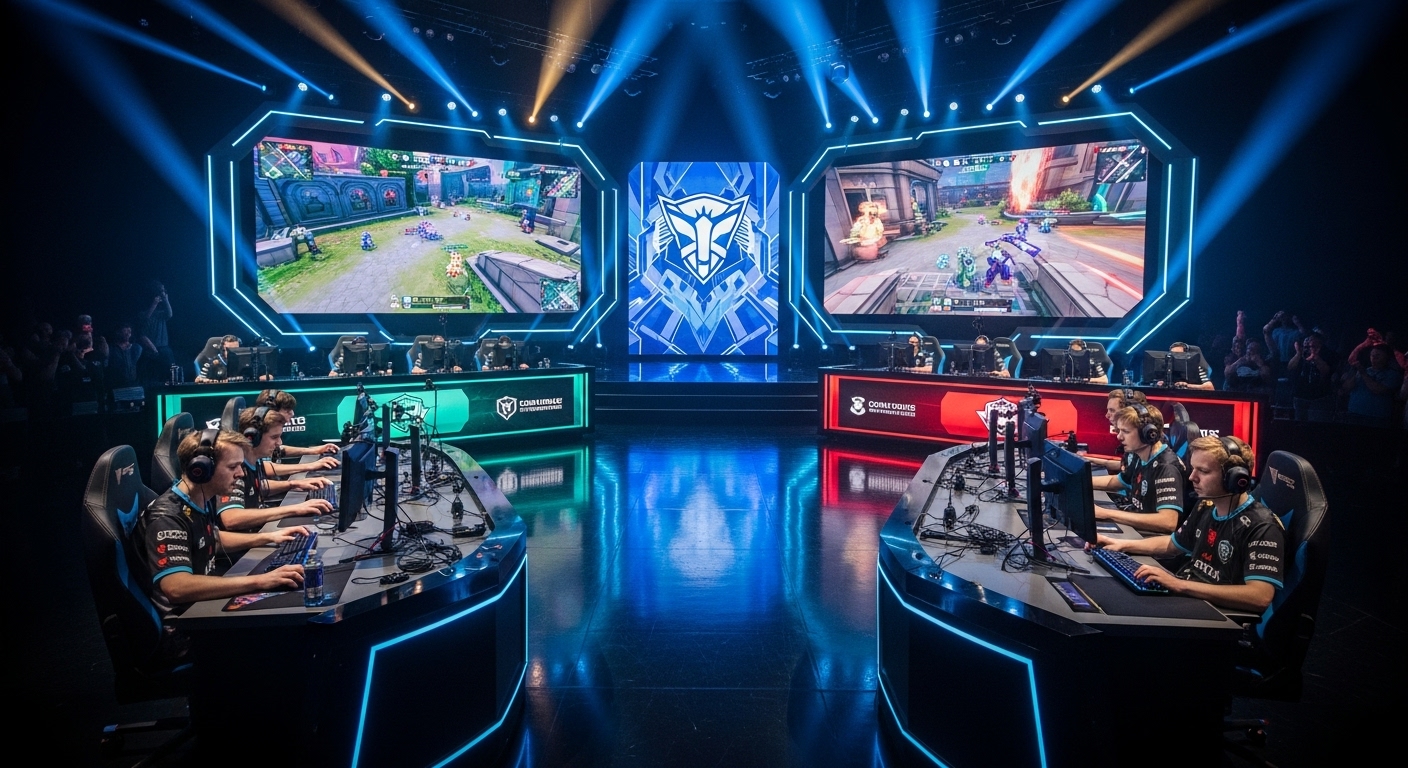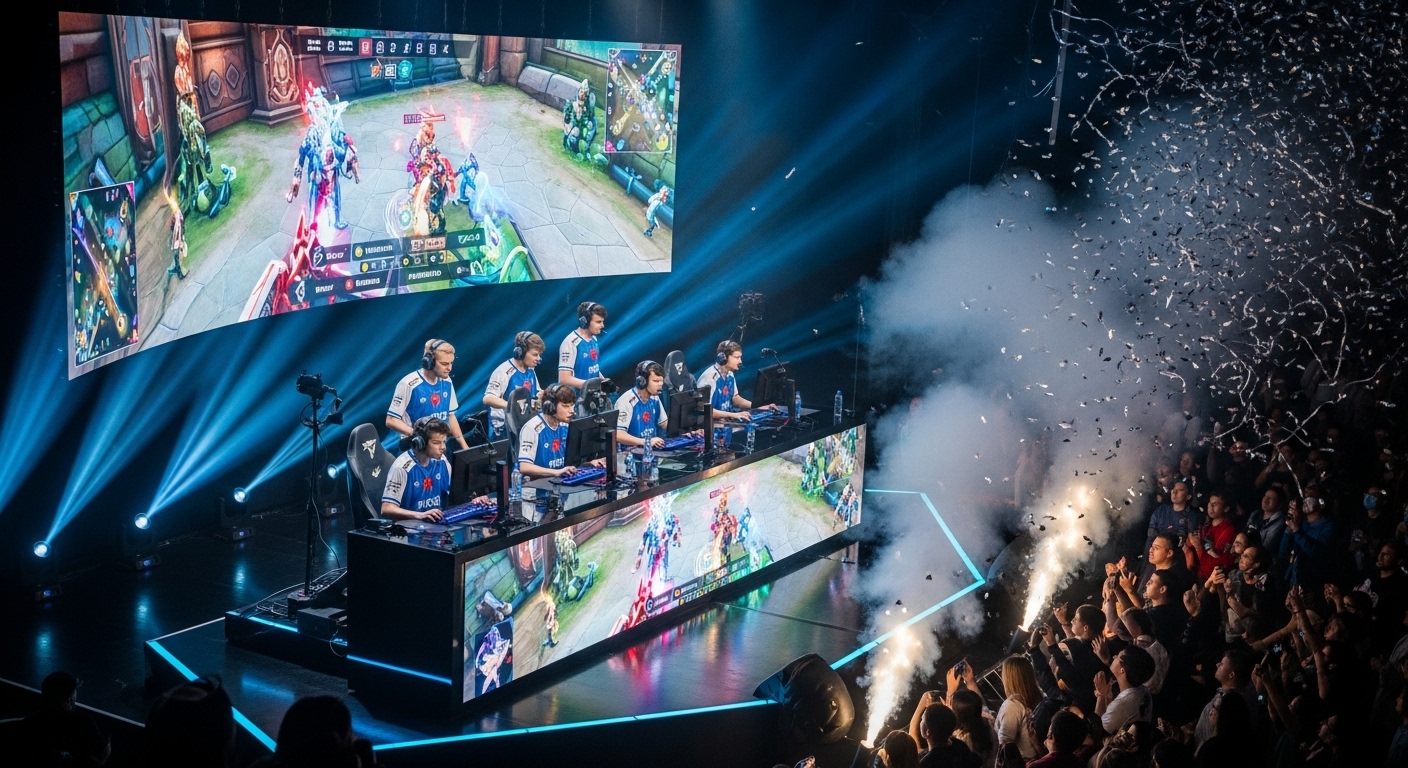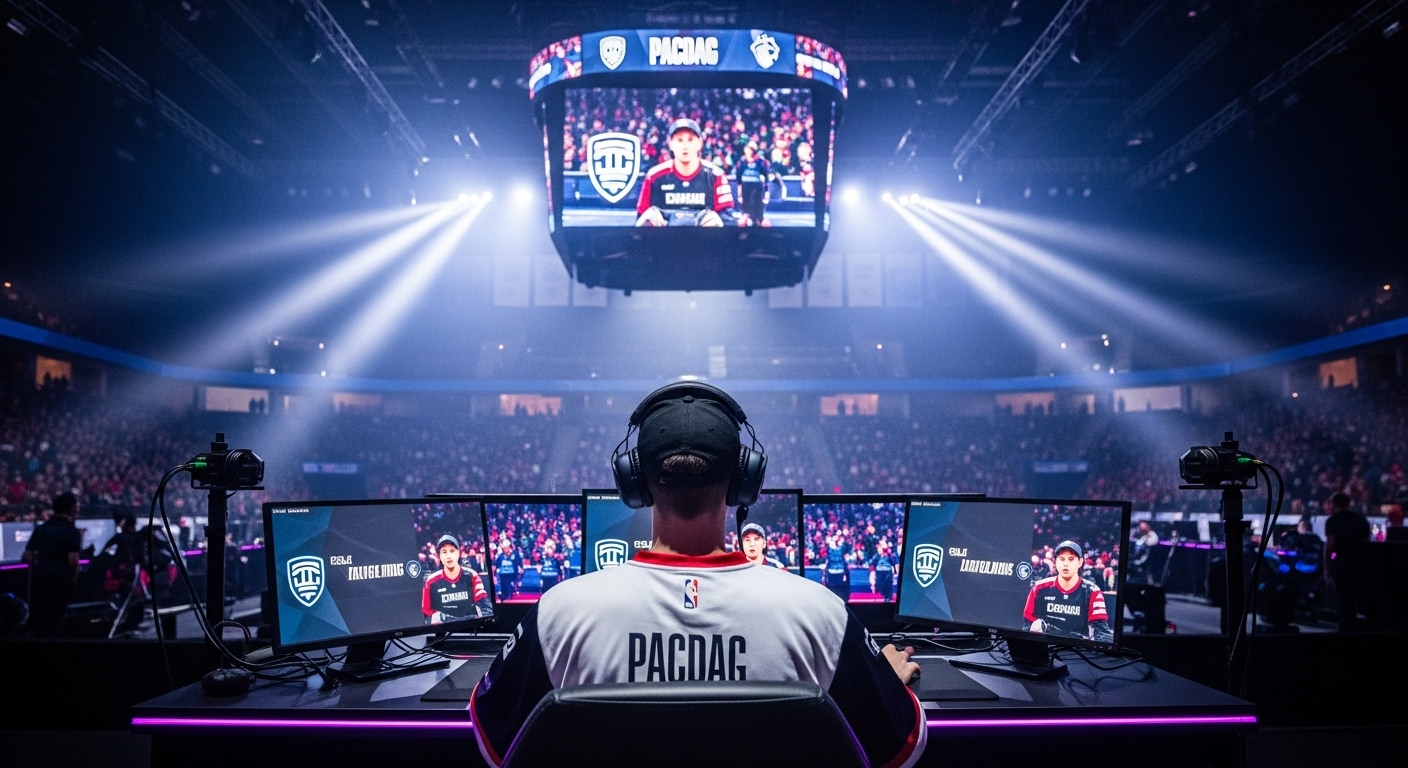Introduction
In the past few decades, the world has witnessed an extraordinary transformation in how people engage with games, entertainment, and competition. What was once dismissed as a pastime for teenagers sitting in dimly lit rooms has evolved into a billion-dollar global industry—Esports. This modern form of competitive gaming has not only reshaped the entertainment landscape but has also created new opportunities for players, investors, and fans alike. From small local tournaments to massive international championships filling entire stadiums, Esports has captured the imagination of millions. The journey from niche gatherings to mainstream recognition is an inspiring testament to the power of technology, passion, and community.
The Origins of Esports
The story of Esports begins long before the term was ever coined. In the early 1970s, video games were still in their infancy, but the seeds of competition had already been planted. The first recorded video game competition took place in 1972 at Stanford University, where students competed in the game Spacewar. The prize? A year’s subscription to Rolling Stone magazine. It was a modest beginning, but it symbolized something much larger: the human instinct to compete, even in virtual spaces.
As technology advanced throughout the 1980s, arcades became the centers of gaming culture. Players competed for high scores in titles like Pac-Man, Donkey Kong, and Space Invaders. Leaderboards were the battlegrounds, and top scorers earned local fame. Though small in scale, these competitions laid the groundwork for what would eventually become organized Esports.
The 1990s: Birth of Competitive Gaming
The 1990s were a turning point for gaming as personal computers and consoles became household staples. Internet connectivity began to bridge the gap between players, allowing for multiplayer gaming on a whole new level. Titles like Street Fighter II, Quake, and StarCraft became pillars of early competitive gaming.
In 1997, the Red Annihilation tournament for Quake made history when the winner received the personal Ferrari of the game’s creator, John Carmack. This marked one of the first moments when gaming competitions began to draw mainstream attention. The same year, South Korea began investing heavily in high-speed internet, unknowingly setting the stage for the country to become the global capital of Esports.
The Korean Revolution
If one nation can be credited for accelerating Esports into a structured and professional activity, it is South Korea. After the economic downturn in the late 1990s, gaming cafés—known as PC bangs—became a popular and affordable entertainment option. Out of this culture emerged the first generation of professional gamers, most notably in games like StarCraft: Brood War.
Television networks began broadcasting live matches, commentators analyzed strategies, and fans gathered to support their favorite teams. For the first time, gaming was treated like a legitimate sport. South Korea also created professional gaming associations that ensured regulations, player welfare, and tournament organization. By the early 2000s, Esports in Korea was thriving, influencing the rest of the world to follow.
The 2000s: Global Expansion
The early 2000s marked the true globalization of Esports. With internet access spreading across the world, tournaments began emerging in North America, Europe, and beyond. The World Cyber Games and the Electronic Sports World Cup became international stages where players from different countries competed for glory.
Games like Counter-Strike, Warcraft III, and Halo developed strong competitive scenes, while Dota—a modification of Warcraft III—introduced the Multiplayer Online Battle Arena (MOBA) genre, which would soon dominate the Esports landscape. Around the same time, Call of Duty and FIFA began building communities that merged casual gaming with competitive passion.
It was also during this period that gaming started to gain more cultural legitimacy. Universities began forming Esports clubs, and early streaming platforms allowed fans to watch live matches from their homes. The seeds of the modern Esports ecosystem were firmly planted.
The Rise of Streaming Platforms
One of the most defining moments in Esports history was the emergence of streaming services. Before platforms like Twitch revolutionized the way audiences consumed gaming content, tournaments were often confined to small audiences or televised only in select countries. Streaming changed everything.
Twitch allowed fans worldwide to watch their favorite players and tournaments live. It democratized Esports viewership and gave rise to new careers—not just for players but also for commentators, analysts, and content creators. Streaming bridged the gap between professional gaming and entertainment, turning players into celebrities.
The Era of Major Titles
As Esports matured, certain games began to dominate the competitive scene. Each title brought its own community, style, and legacy.
1. League of Legends (LoL):
Released in 2009, League of Legends became one of the most influential Esports titles ever. Riot Games built a professional ecosystem around it, with regional leagues leading to an annual World Championship. The game’s mixture of strategy, teamwork, and skill created a viewing experience comparable to traditional sports.
2. Dota 2:
A spiritual successor to the original Dota, Dota 2 became famous for The International, its annual tournament with record-breaking prize pools. Funded partly by the community, it showcased the incredible financial potential of Esports.
3. Counter-Strike: Global Offensive (CS:GO):
Building on decades of tactical shooter legacy, CS:GO became the gold standard for first-person shooter Esports. The game’s simplicity combined with deep strategy made it accessible and thrilling for both casual fans and hardcore players.
4. Fortnite and Battle Royale Games:
The late 2010s saw the rise of the battle royale genre. Fortnite in particular blurred the line between gaming and pop culture. Its tournaments offered millions in prize money, and its blend of creativity and competition attracted both gamers and mainstream audiences.
5. Mobile Esports:
With the explosion of smartphones, mobile games like PUBG Mobile, Mobile Legends: Bang Bang, and Free Fire created new Esports communities, especially in Asia and Latin America. These games made competitive gaming accessible to millions who lacked gaming PCs or consoles.
The Professionalization of Esports
As Esports grew, it began adopting structures similar to traditional sports. Teams now have coaches, analysts, nutritionists, and even psychologists. Organizations scout young talent and train them in academies. Sponsorship deals with major brands, from tech giants to beverage companies, have brought in massive investments.
Players now sign professional contracts, and many earn six-figure salaries, not counting sponsorships and streaming income. Esports arenas have been built in major cities, and universities offer scholarships for competitive gamers. This professionalization has solidified Esports as a viable career path rather than a hobby.
Esports and Mainstream Recognition
One of the most significant milestones in Esports history was its recognition by mainstream culture and institutions. Global sports organizations have started collaborating with Esports leagues. Some countries recognize professional gamers as athletes, granting them visas similar to traditional sports players.
Media coverage has also increased. Major sports networks now broadcast Esports tournaments, and documentaries showcase the journeys of professional players. Esports stars have become influencers with millions of followers across social media platforms.
The Role of Technology
None of this would have been possible without rapid technological advancement. High-speed internet, powerful graphics cards, and advanced streaming technology have all contributed to the seamless experience of modern Esports. Virtual reality and artificial intelligence are now being explored as the next frontiers of competitive gaming.
Technology has also enabled global participation. Players from different continents can compete in real time, breaking geographical barriers. This inclusivity has helped Esports grow into a truly international phenomenon.
The Community and Culture of Esports
At the heart of Esports lies a vibrant and passionate community. Unlike traditional sports, which are often regionally confined, Esports communities are global. Fans gather online to discuss strategies, celebrate victories, and support their favorite teams.
Events like conventions, fan expos, and viewing parties strengthen the bond between players and fans. Cosplay, fan art, and online memes contribute to a unique culture that blends creativity with competition. Esports has not only created entertainment but also fostered friendships and collaboration across borders.
The Economic Impact of Esports
The economic footprint of Esports is massive and still expanding. Major tournaments boast multi-million-dollar prize pools, while sponsorships and advertising generate billions annually. Esports organizations, streaming platforms, and event management companies have all become lucrative businesses.
Cities that host Esports tournaments see boosts in tourism and local economies, similar to traditional sporting events. Additionally, the rise of content creation around gaming—such as YouTube channels, podcasts, and social media influencers—has further multiplied economic opportunities within the industry.
Challenges Facing the Esports Industry
Despite its success, Esports faces challenges that must be addressed for long-term stability. Player burnout is a growing concern, as the pressure to perform can lead to stress and health issues. Regulation is another issue, as different games and regions have inconsistent rules and governance.
Cheating, match-fixing, and toxic online behavior have also threatened the integrity of Esports. Ensuring fair play, mental health support, and diversity remains crucial for the industry’s continued growth.
Esports in Education and Career Development
An interesting development in recent years has been the inclusion of Esports in educational settings. Schools and universities now offer Esports scholarships, coaching programs, and degrees related to game design, marketing, and management. This integration of gaming into education represents a cultural shift in how society perceives Esports—as not just entertainment, but as an academic and professional pursuit.
Careers in Esports extend beyond players. Commentators, analysts, event organizers, coaches, marketing experts, and developers all contribute to this thriving ecosystem. The industry provides a multitude of opportunities for those passionate about gaming but interested in different professional roles.
The Future of Esports
The future of Esports looks brighter than ever. With the continuous growth of technology and online connectivity, the possibilities are endless. Virtual and augmented reality could redefine how games are played and experienced. Artificial intelligence might revolutionize player training and strategy analysis.
Esports is also likely to feature more prominently in global sporting events. Talks about including Esports in the Olympic Games have already begun, reflecting its growing legitimacy. The next decade will likely see deeper integration between Esports, entertainment, education, and technology.
Conclusion
Esports has transcended its humble beginnings to become one of the most dynamic and influential industries in the world. It is a fusion of skill, technology, creativity, and community. What once started as simple fun among friends has evolved into a global spectacle that unites millions under the banner of digital competition.
From the early arcade battles to sold-out stadiums and million-dollar tournaments, Esports has proven that gaming is far more than a hobby—it is a culture, a profession, and a way of life. As the world continues to embrace digital transformation, Esports will remain a powerful symbol of innovation, connection, and the limitless potential of human competition.



